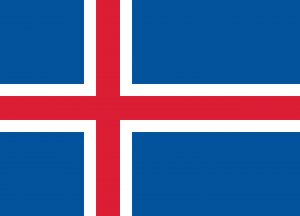Language/Icelandic/Vocabulary/Days-of-the-Week
Hi Icelandic learners! 😊
In this lesson, we will dive into the vocabulary of the days of the week in [Language/Icelandic|Icelandic]. The days of the week are an essential part of any language as they allow us to schedule our days, plan events, and talk about our routines. By the end of this lesson, you will be able to master the Icelandic vocabulary of the days of the week. Let's get started!
Days of the Week
In Icelandic, the days of the week have a unique structure as they are named after the gods and goddesses of Norse mythology. The Icelandic language has preserved many words from Old Norse, and the days of the week reflect this tradition.
Here is the list of the days of the Week in Icelandic:
| Icelandic | Pronunciation | English |
|---|---|---|
| Mánudagur | ['man.ʏ.taˌkʏr] | Monday |
| Þriðjudagur | ['θrɪð.jʏ.taˌkʏr] | Tuesday |
| Miðvikudagur | ['mɪð.vɪ.kʏ.taˌkʏr] | Wednesday |
| Fimmtudagur | ['fɪm.tʏ.taˌkʏr] | Thursday |
| Föstudagur | ['fœs.tʏ.taˌkʏr] | Friday |
| Laugardagur | ['løiˌgar.tʏr] | Saturday |
| Sunnudagur | ['sʏn.ʏ.taˌkʏr] | Sunday |
Now, let's take a closer look at each day:
Mánudagur
Mánudagur comes from the Old Norse “mánadagr” meaning “moon day.” In Norse mythology, Mánadagr was named after the god Máni, who was believed to be the personification of the moon.
Example sentence:
- Person 1: "Ég fer í dans á Mánudögum." ("I go dancing on Mondays.")
- Person 2: "Hljómar gaman, hvaða hljómsveit leikur á Mánudögum?" ("Sounds fun, which band plays on Mondays?")
Þriðjudagur
Þriðjudagur means “third day” in Icelandic. It was named after the Germanic god Thor, who was known as the god of thunder and war.
Example sentence:
- Person 1: "Ég er mjög upptekinn á Þriðjudögum." ("I am very busy on Tuesdays.")
- Person 2: "Af hverju?" ("Why?")
- Person 1: "Ég hef spáverðlaun þann dag." ("I have a prediction market that day.")
Miðvikudagur
Miðvikudagur, meaning “middle of the week,” represents the mid-way point and is also called “hálfmáni,” meaning “half-moon.”
Example sentence:
- Person 1: "Ég vinn alltaf um Þriðjudaga og Miðvikudaga." ("I always work on Tuesdays and Wednesdays.")
- Person 2: "Er það ekki erfitt?" ("Isn't that hard?")
- Person 1: "Já, en ég fæ hamingjusamari helgi. 😊" ("Yes, but I get a happier weekend. 😊")
Fimmtudagur
Fimmtudagur means “fifth day” and was named after the god Tyr, who was believed to be the god of war and justice.
Example sentence:
- Person 1: "Á hverjum degi kynnast þið nýjum fólki?" ("What day do you introduce yourself to new people?")
- Person 2: "Venjulega á Fimmtudögum." ("Usually on Thursdays.")
Föstudagur
Föstudagur was named after Frigg, the goddess of love and fertility in Norse mythology.
Example sentence:
- Person 1: "Á hverjum degi eru stærstu handauppreisnir?" ("What day are the biggest protests?")
- Person 2: "Aukalega á Föstudögum." ("Also on Fridays.")
Laugardagur
Laugardagur means “washing day” in Icelandic and is also called Saturday. It was believed that bathing in natural hot springs was therapeutic, and therefore people used to take their weekly baths on this day.
Example sentence:
- Person 1: "Hvert ætli við förum á Laugardegi?" ("Where do we go on Saturday?")
- Person 2: "Ég hef heyrt, að það sé lifandi tónlist á Austurbæjarbíó." ("I heard that there is live music at Austurbæjarbíó.")
Sunnudagur
Sunnudagur means “sun day” and was named after the sun goddess, Sunna.
Example sentence:
- Person 1: "Það er alveg nóg á Sunnudögum að liggja í rúminu og horfa á myndir." ("There is enough on Sundays to lie in bed and watch movies.")
- Person 2: "Þú hefur rétt fyrir þér. 😊" ("You're right. 😊")
Conclusion
Now you know all the days of the week in Icelandic and some cultural background on how they got their names. Don't forget to practice with your Icelandic-speaking friends or find native speakers and ask them any questions. To improve your [Language/Icelandic|Icelandic] [Language/Icelandic/Vocabulary|Vocabulary], you can also use the Polyglot Club website.
We hope you enjoyed this lesson! Takk fyrir (Thanks for) studying with us today! 😊
➡ If you have any questions, please ask them in the comments section below.
➡ Feel free to edit this wiki page if you think it can be improved. 😎
Videos
Days of the Week in Icelandic Language - YouTube
Related Lessons
- Fruits and Vegetables
- Information about origins
- Education
- Emergency phrases
- Feelings and Emotions
- Express Surprise
- Basic phrases: I don't understand something
- Food
- Basic Icelandic Phrases
- Common words and Greetings
Sources
- Icelandic Days of the Week - ielanguages.com
- Icelandic lessons: Days of the week
- Days of the Week in Icelandic | Weekdays in Icelandic | Happy Days ...

